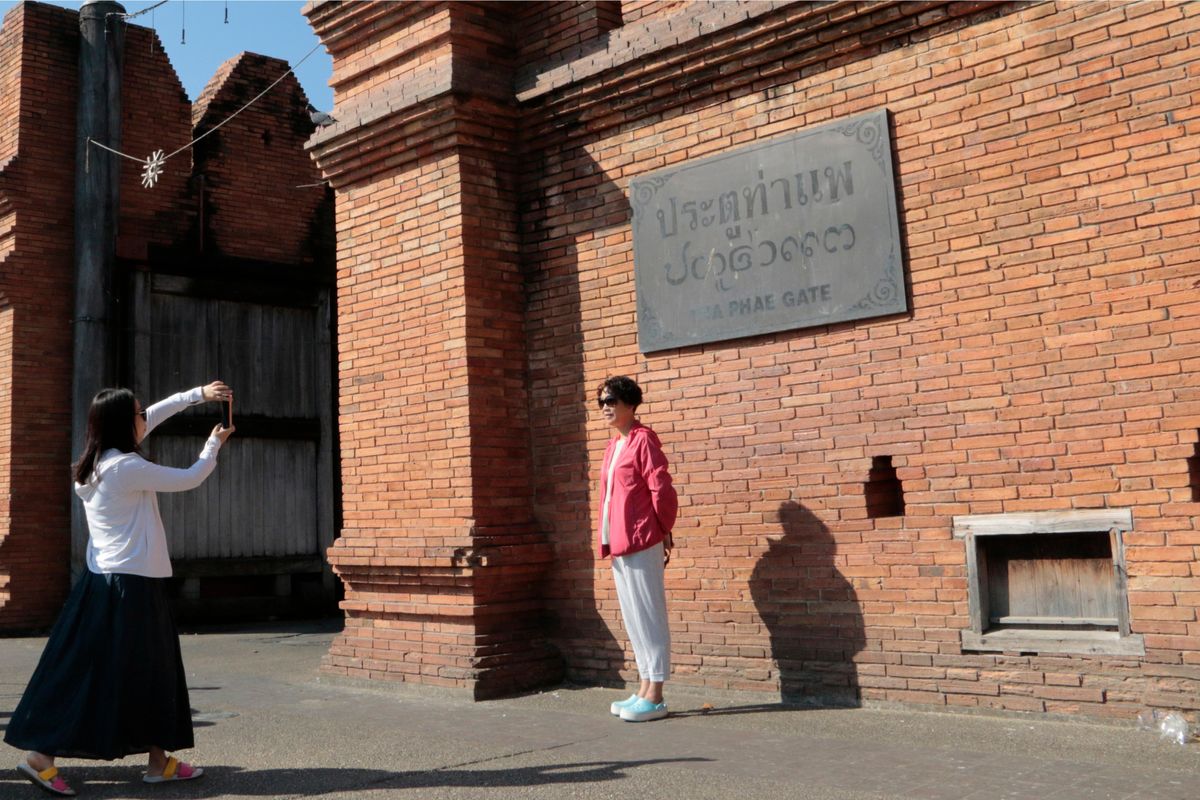After spending two college semesters in northern Thailand, Sarah Jongsma found herself back home in the rural Nevada town where she grew up, surrounded by everything familiar yet feeling strangely out of place.
“It caught me off guard,” she said. “I didn’t know what was going on.”
Only later, after a summer studying in India and while preparing to go to France for another semester abroad, did Jongsma understand what she had been feeling: reverse culture shock.
The 22-year-old’s experience shows that studying abroad can be challenging in unexpected ways. Experts say that’s why students need to study up on not only safety precautions and cultural differences, but also the emotional shifts that may come with leaving home — and returning to it.
Planning for low points and potential disappointments, experts say, can help students focus on making the most of a trip that is exciting, challenging and life-changing.
“The value and purpose of studying abroad is to learn about the rest of the world as well as learn about yourself. In fact, it is the juxtaposition of having your assumptions tested that you can gain from studying abroad and helps you understand yourself even better,” said Bill Bull, vice president of risk management for the Council on International Educational Exchange, which facilitates high school, college and faculty study-abroad programs.
Here are some tips that experts and students recommend for anyone heading off to learn in a foreign country:
Before you travel
Along with having an up-to-date passport and a visa, if their host country requires one, students need to be aware of potential risks and cultural expectations based on their ethnicity, nationality, race, gender, sexual orientation and religion.
Many countries do not recognize same-sex unions, so experts suggest being careful of open interactions with a partner of the same sex. Women may face cultural expectations around dress or hair, or find it hard to obtain birth control or feminine hygiene products they didn’t think to bring with them.
“Make plans for what you will do when things go wrong, because things can go wrong and things will go wrong,” said Bull, who recommends connecting with students who studied abroad, as well as their parents, for advice they wished they’d had. “It doesn’t mean it has to be the end of your experience. It just means that you need to be ready to manage it.”
Some study-abroad programs offer basic health coverage, but students should consider medical evacuation insurance and check whether any of their regular prescribed medications are illegal abroad. The U.S. Department of State also recommends enrolling in the Smart Traveler Enrollment Program, a free safety and security alert service for U.S. citizens.
Advance research also is important for students still thinking about whether to apply for a study-abroad program.
Financial and academic planning are equally important, as they are among the biggest barriers for students seeking to study abroad, said Phoebe Stears-Macauley, a Germany and Spain program advisor for the University Studies Abroad Consortium, which offers study-abroad programs for university students.
“Meet with your academic advisors, talk through the classes you will take and how those will transfer back, and meet with your financial aid office,” she said.
While a lot of the preparation and precautions are about practical needs, experts and students say it’s just as much about setting realistic expectations.
When Jongsma left for the Thai city of Chiang Mai in 2023, it was her first time traveling internationally and being away from her parents.
“When you’re getting ready to leave, you get really focused on your own personal goals and how you’re going to meet them,” she said. “I don’t think you realize that when you get there, you’ll miss your community a lot.”
Homesickness may feel even sharper around holidays like Thanksgiving, especially for students who have not spent them away from family before. Jongsma suggests bringing small reminders of home with you and keeping a journal. She also packed a small portable printer for her summer studies in Bengaluru, India, in case she wanted to print out pictures of family and friends.
While abroad
Once students arrive at their destination, experts suggest slowing down and observing their surroundings. A common regret Stears-Macauley said she hears from returning students, especially those who studied in Europe, is that they spent every weekend traveling and not getting to know their host city.
Bull advises students to think about why they are studying abroad in the first place and what they hope to get from the experience. Choosing to be present in the moment instead of constantly taking photos can make the time far more meaningful and yield cultural clues that help you fit in, he said.
“Anyone can go be a tourist,” Bull said. “You want to notice what’s going on around you. You want to look at what people are wearing and what they’re not wearing. You want to see, do people stop at the red lights or do they cross anyway?”
Programs can last anywhere from a few weeks to more than a year, and students may face mental health challenges such as loneliness, depression or language-related anxiety. Many programs offer on-site support, but experts say students should have a plan in place before those symptoms occur.
For Dominic Motter, who spent a semester in London in 2023, familiar routines helped when homesickness struck. Like Jongsma, Motter’s trip abroad was his first time away from family and friends for an extended period of time, and he was surprised when confronted with the feeling of homesickness.
“I’d never known that feeling before,” he said.
An avid runner, Motter would jog in the park whenever he felt overwhelmed, a simple ritual from back home that helped him feel more grounded. He also found comfort in decorating his room, both with items from home and new souvenirs from his travels. At the end of the day, he said it helped him feel like he was “coming home.”
“Instead of it feeling like a temporary dorm room or hotel room,” he said, it put him in the mindset that “this is now my new home.”
Upon return
Experts say many students returning home are going through a transition and may struggle with reverse culture shock without realizing it.
“You’ve had this transformative experience. You’ve changed and grown so much, and you come back to the place where you were before and it’s all different because you’re so different,” Stears-Macauley said. She suggests joining local international clubs or alumni associations from the foreign school you attended to find support.
Students can also prepare by answering the following questions, Bull said: How will you contextualize your experience? What aspects are most important to share? Which details are suitable for brief conversations, and which are better saved for deeper conversations with people who want to understand what made the experience meaningful?
For Jongsma, it helped to create new experiences in a familiar place — even something as simple as checking out a new museum, she said. Motter, who spent his first few weeks wishing he were back in London, said it helped to talk with the friends he’d made there because they actually understood what he was feeling.
As he put it: “It’ll eventually feel like home again.”
___
Mumphrey reported from Flagstaff, Arizona. Yamat reported from Las Vegas.
By CHEYANNE MUMPHREY and RIO YAMAT
Associated Press



